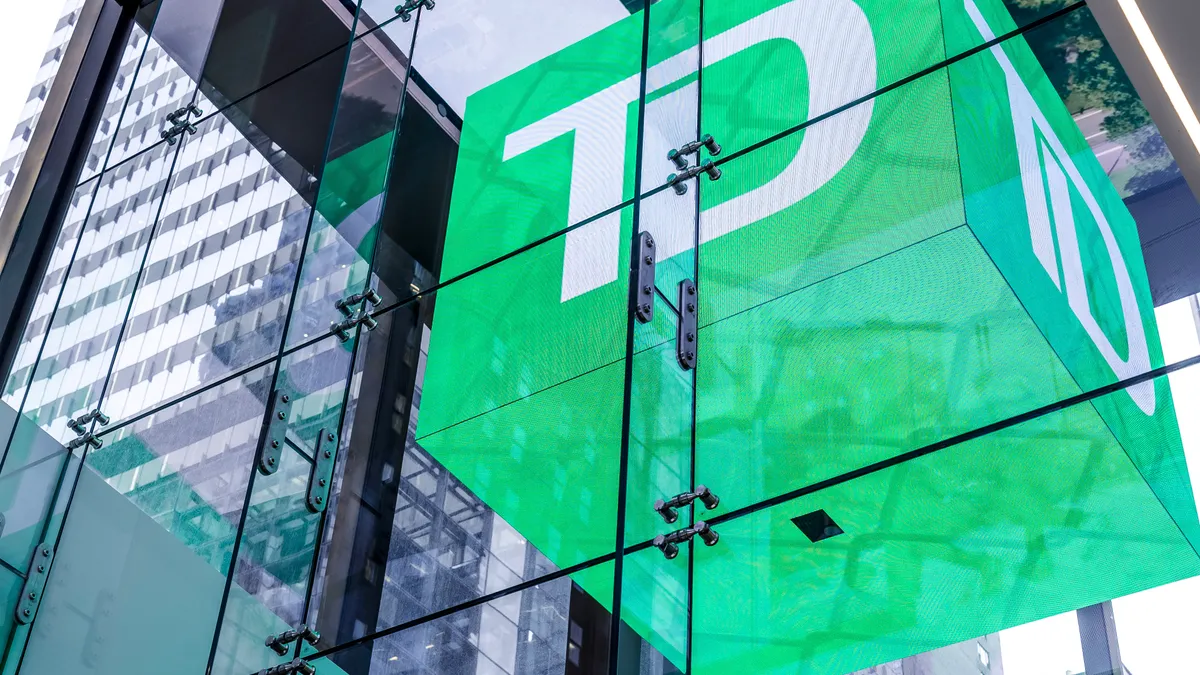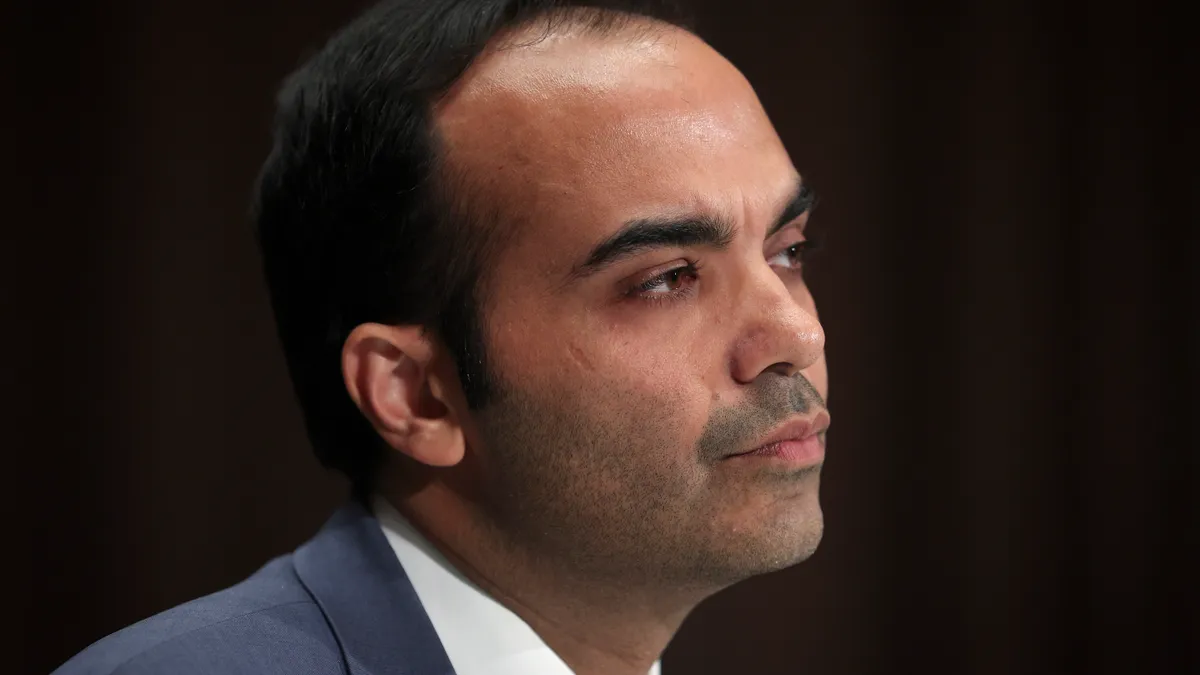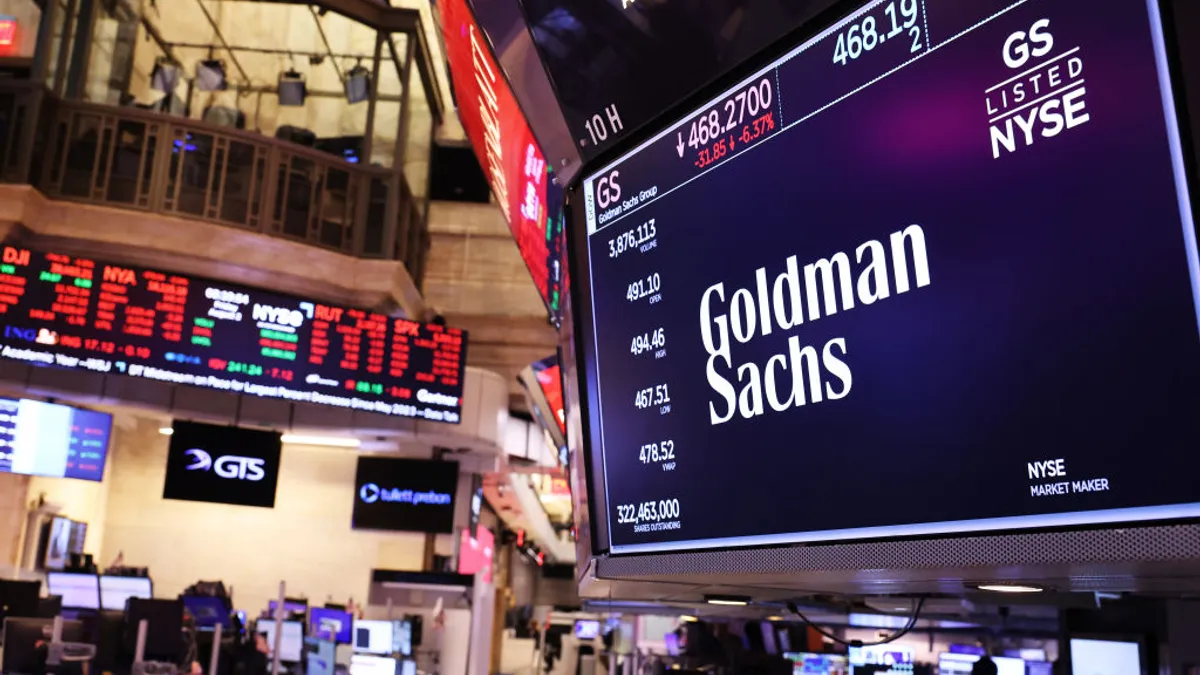A TD Bank employee in Florida allegedly accepted a series of $200 bribes to move millions of dollars to Colombia, court documents show.
The criminal complaint, filed in the U.S. District Court for the District of New Jersey, comes during an ongoing Justice Department investigation into TD’s anti-money laundering practices. The investigation is expected to result in financial penalties of as much as $2 billion.
In Hollywood, Florida, now-former retail banker Gerardo Aquino Vargas allegedly provided services for criminals to send money to Colombia. Aquino Vargas allegedly provided one co-conspirator with at least 28 debit cards — netting Aquino Vargas $5,600 in bribes — and claimed that he charged them a lower rate than he charged others for the same illegal services.
“Man, to me, this isn’t business. Honestly, I was thinking $200 per client with you guys,” Aquino Vargas said to the co-conspirator in Spanish, according to court documents. “Obviously, I gave you 28 cards. That $200 I’m giving you guys, I’m not doing anymore. With other people, it’s $500-$800 per account man. You guys know that you are my thing.”
When TD froze some of the debit cards after identifying potentially fraudulent ATM transactions in Colombia, Aquino Vargas allegedly had two of them unblocked, according to court documents.
The complaint does not directly name TD, instead referring to it as “Financial Institution-A, one of the largest retail banks in the United States.”
TD spokesperson Lisa Hodgins told Banking Dive that the bank “works with law enforcement to identify, stop and support the prosecution of criminals.”
“When we became aware of these matters, we took action against these employees, coordinated efforts with the DOJ, and have supported their work to bring these criminals to justice,” she said. “More broadly, where our program was ineffective, we have held those leaders accountable and are taking action to drive the changes and meet our obligations.”
The Justice Department did not return Banking Dive’s request for comment. The Office of the Comptroller of the Currency, TD’s primary U.S. regulator, said it does not comment on specific banks.
The aforementioned ongoing DOJ investigation was spurred by a 2021 criminal case in which federal prosecutors charged New York City-based Da Ying Sze with coordinating a scheme that laundered at least $653 million in proceeds from illegal fentanyl.
DOJ agents had followed members of Sze’s group during their investigation. In one day, Sze’s team stopped at three TD branches, and DOJ prosecutors allege Sze and others provided gift cards and other bribes worth at least $57,000 to bank employees.
“This is unacceptable, and we must and we will do better,” a TD spokesperson told Banking Dive in early May. “As previously disclosed, we have been and continue to cooperate with law enforcement and our regulators. A comprehensive effort is underway to strengthen our AML program, including investments in talent, tools and technology.”
The bank recently overhauled leadership of both its global and U.S. AML programs, CEO Bharat Masrani told TD employees on April 30.
“In recent weeks, our U.S. AML program has generated significant media attention. As I've shared, our AML program did not deliver and as a result, criminals broke through our defenses and used the Bank to launder money,” Masrani said in the note, shared with Banking Dive by someone close to the bank. “This is absolutely unacceptable and does not reflect who we are, our values, or what our brand stands for.”
“We know what the issue is and we are fixing it. The Bank has mobilized all the necessary resources to overhaul our AML program,” Masrani wrote. “We've onboarded new leaders, hired hundreds of colleagues, redesigned controls, built new processes, deployed new technology and implemented improved training.”
The bank also disclosed that day, prior to the fentanyl report, that it would set aside $450 million to cover expected penalties from one U.S. regulator. It made clear, those, that it anticipated “additional monetary penalties” which were “unknown and not reliably estimable at this time.”











